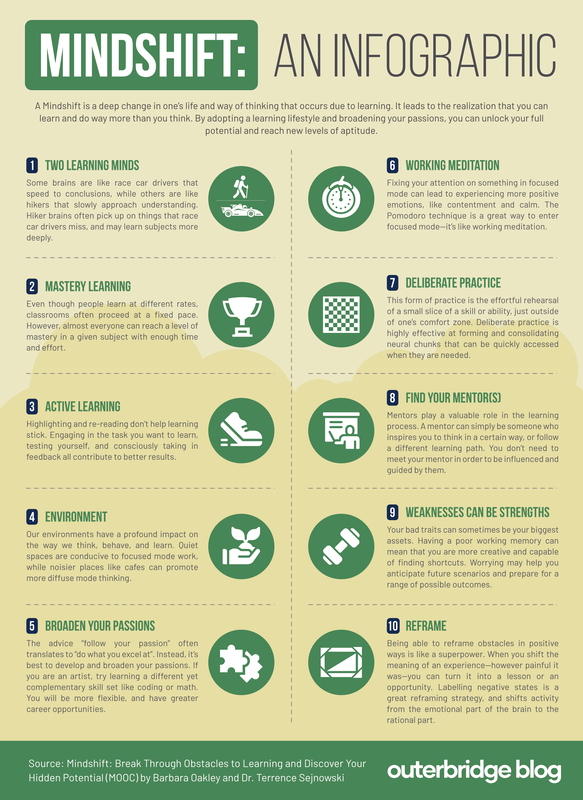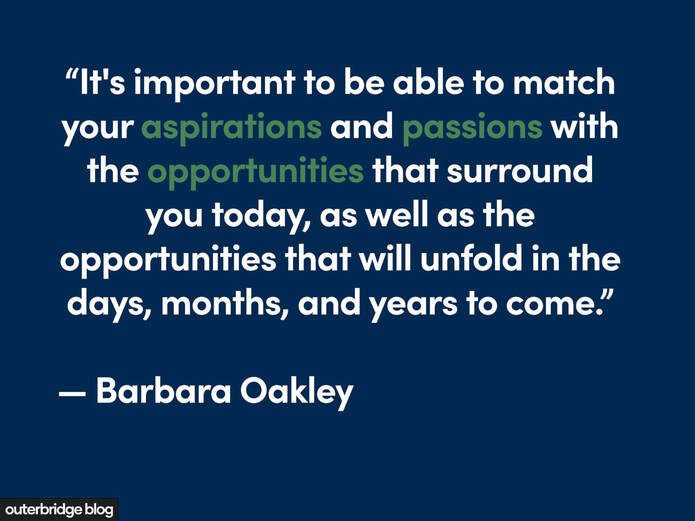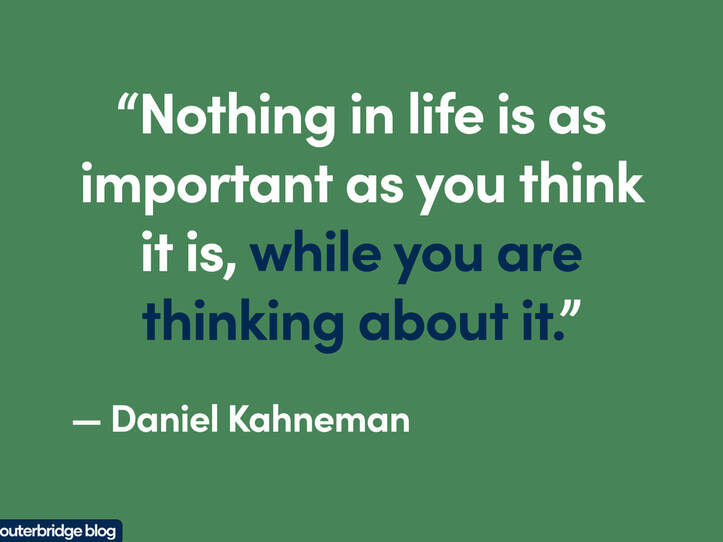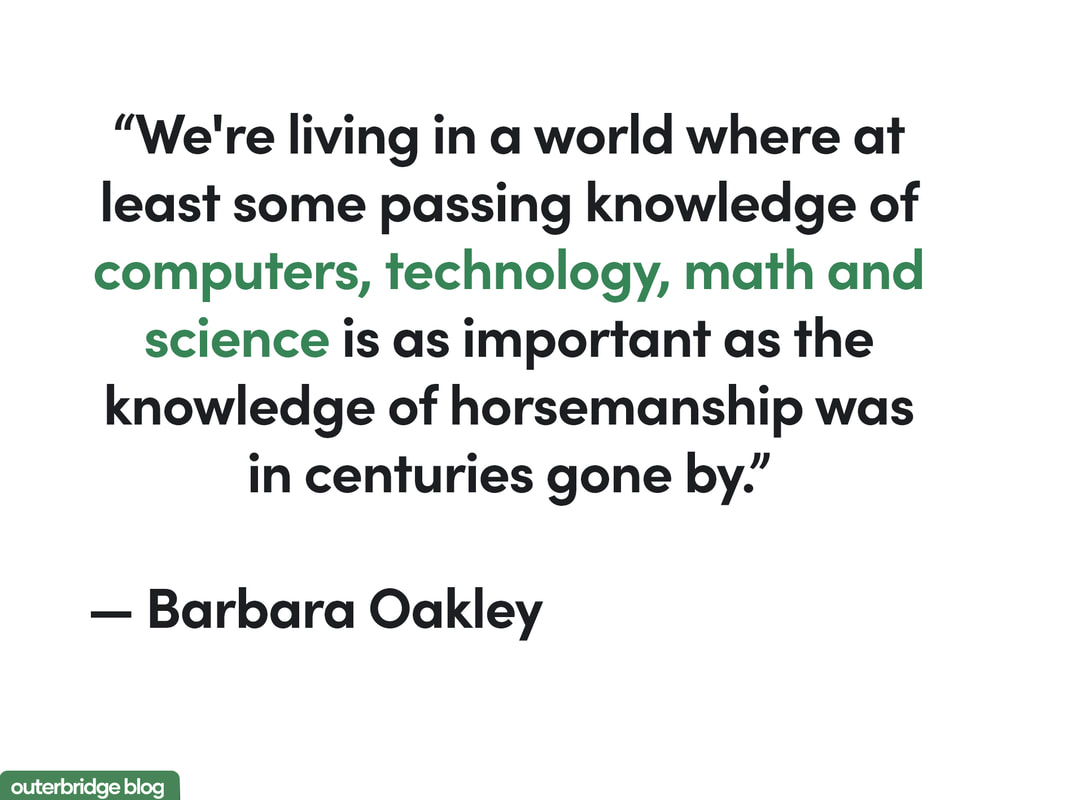|
With the right approach, you can transform setbacks and failures into opportunities.
It used to be that having a single area of expertise was enough to succeed. This is no longer the case, due to rapid growth in technology and new media. Now, people with multiple competencies are outperforming their single-skilled peers. Fortunately, there are unprecedented opportunities to develop new skills, master complex concepts, and improve at an array of fun and fulfilling hobbies. Accessibility is no longer the limiting factor. What you do need is time, attention, and the right learning mindset. The Mindshift online course by Barbara Oakley and Terry Sejnowski provides a framework that takes up where Learning How to Learn leaves off. It walks you through new learning strategies, how to change yourself through learning, and even what goes into making a high-quality online course. There is also the Mindshift book, which offer complementary stories and insights that don't appear in the course videos. Here's an infographic (like this one from Learning How to Learn) that captures ten essential concepts from the course: Keep reading below to find my detailed notes from the course. Mindshift A mindshift is a deep change in life and direction that occurs due to learning. Race Car Brains vs. Hiker Brains Some people are able to reach conclusions quickly, while others take longer to get there. However, those who rapidly understand new ideas often have difficulty changing their minds, while slower thinkers tend to be able to course correct more easily and notice things that others might miss. Active vs. Passive Learning Passive learning strategies like rereading, highlighting, and listening to lectures don’t help learning stick. Active learning works better, and involves taking charge of the learning process. Spend time directly doing what it is you want to learn. Courses that make time for active learning have better student retention rates, and can lead to better academic outcomes. Testing yourself is one of the best things you can do to retain what you learn. It can be all too easy to think you know something when you have heard or read about it a few times, but often this isn’t the case. Past knowledge and skills can be applied to new situations, but it helps if our prior knowledge base is deep and we spend time actively learning the material. There are two general types of mindshifters: young people who try to see problems differently, or older people who switch disciplines and make connections others can't. Mastery Learning Mastery learning is when you take the time and make the effort necessary to fully grasp the material of a concept or subject. The amount of time it takes to master the content from a course varies from person to person; however, almost everyone can reach a level of mastery at a given subject, even if they aren’t naturally good at it. Brick-and-mortar classrooms often pass over concepts at a steady pace, which means that those who excel at a particular subject have the chance to develop the competencies necessary to succeed, while those who learn more slowly or struggle with the material are left behind. Online courses are ideal for mastery learning as they offer lectures, tests variants, and examples that can be engaged with again and again. You can fail a course and retake it as many times as you want, or selectively complete parts of the course that are of interest to you, or that you find most challenging. Analogies and metaphors are useful for explaining how things work, and distilling complex concepts into key ideas. However, once you reach the limits of their usefulness, you can replace them with other analogies and metaphors that serve you better. Another way to look at focused and diffuse modes is through the analogy of excavation. When you are in focused mode, you are concentrating hard and your inputs are like digging into one specific area. In diffuse mode, which is more of an organizing mode, you are distributing what you have excavated across other parts of your brain. Environment While quieter, library-like environments are more conducive to focused mode, ambient noise can enhance diffuse mode. The connection between sound and diffuse attention may have to do with the fact that noises tend to pull us out of sustained focus. Our environments have a profound impact on the ways we think, behave, and learn. Bright, outdoor spaces can promote physiological arousal, while darker indoor spaces tend to lower our levels of arousal. High ceilings promote more abstract, free-form thinking, while lower ceilings encourage fixed, detail-focused thinking. Invasive sounds and light can impact our circadian rhythms if they happen at inopportune times of the day or night. We often have a significant amount of control over our environments. You can even shape your environment to better suit the behaviours and patterns of thinking that you want to have. Broaden Your Passions Many of today’s jobs require competence in technology, math, and science. Even if you are more of an arts-oriented person, it is worthwhile to acquire working knowledge in tech to round out your skillset. Conversely, if your area of focus is in STEM, it might be valuable to pick up an instrument, learn to draw, or take up a more artistic pursuit. Broadening your passions in this way is great for your career and future success.
On average, boys tend to have lower levels of verbal ability than girls, due in part to the presence of testosterone. They may pursue science and math, not because they are more capable in these areas than girls, but because they come more easily relative to verbal fluency.
Identity plays an important role in skill development. You are likely to spend more time at things you are already good at, because they seem like a part of who you are. The advice “follow your passion” often translates to “do what you excel at”. In contrast, developing and broadening your passions leads to more flexibility in terms of career opportunities. In fact, you can often learn things more deeply when they don’t come naturally to you. Memory Having a poor memory can actually benefit you in some ways. The act of forgetting allows other neural “chunks” to occupy your working memory slots, which allows you to come up with more creative ideas. Keeping a bunch of disparate chunks in working memory is a recipe for forgetfulness. Perform a “brain dump” by writing down things you need to remember, so that you don’t have to hold it all in your head at once. While your working memory can only hold four to five chunks, those chunks can be incredibly complex. Even the act of getting up from a chair and walking to a door requires coordination, cognitive and motor skills. However, because we have internalized this chunked pattern, it feels easy to us. When you need to, you can overcome the limitations of a poor working memory by using a memory palace, or by forming associations between two things (the stranger and more multi-sensory, the better). Working Meditation Different types of meditation use focused and diffuse types of thinking. Sounds or mantras may strengthen focused mode thinking, while Vipassana, which involves monitoring the sensations of the body without judgment, can promote more diffuse thinking. Fixing your attention on something in focused mode can lead to more positive emotions, like contentment and calm. Having your mind wander in diffuse mode results in divergent thinking, but can sometimes lead to feelings of worry and anxiety. This is because your thoughts might wander to unexpected—and often undesirable—places. (Side bar: I wonder if this is why so many highly creative people report melancholy and negative emotions.) Promoting the right amount of productivity and creativity involves striking a balance between these two modes of thinking. There are four key elements to the Pomodoro Technique: deciding when to start, setting the timer for 25 minutes, focusing as intently as possible for the duration, and rewarding yourself for 5 minutes afterwards. If you find yourself getting into the zone of work and feel that you would lose momentum if you took a break, it’s okay to continue working for a longer period of time. The Pomodoro Technique is like a kind of working meditation. It can strengthen your attention, and help you overcome the pain that your insular cortex produces when faced with a daunting or work-related task. Procrastination When combatting procrastination, try the following three approaches: 1) Increasing the expectancy, and certainty, of rewards. The more consistent you are with rewarding yourself, and the more you keep in mind the future rewards of learning, the easier it will be to stop procrastinating. 2) Boost the sense of value you associate with learning. If you perceive the learning you are doing to be valuable and pleasurable, you are more likely to stick with it. 3) Lower your levels of impulsiveness and distraction. Make it harder for yourself to lose focus by using tools like the Pomodoro Technique, setting up a noise-free environment, and keeping browser tabs closed and phones out of view. Check out Alex Vermeer’s fantastic flow chart, which outlines actions and strategies you can use to increase expectancy, increase value and decrease impulsiveness. Procrastination can be productive(gasp!) if you have a bunch of data or information that you are looking to process. Having extra time to mull things over in diffuse mode can lead to unexpected insights. Memory and Understanding Historically, memorization was held in higher regard than conceptual understanding. Today, the scales have shifted too far in the other direction; the process of understanding is valued much more than memory or repetition. However, optimal learn happens in the sweet spot between these two approaches. Memorizing an equation can help you to understand it more thoroughly. After all, an important part of learning is being able to bring skills and knowledge into working memory. Deliberate Practice Anders Ericsson pioneered the concept of deliberate practice, which is the effortful rehearsal of a small slice of a skill or ability, just outside of one’s comfort zone. Usually, deliberate practice involves a mentor or coach who can help you stretch past your current levels of capability. This form of practice is highly effective at forming and consolidating neural chunks that can be quickly accessed when they are needed. Check out this video of Japanese school children performing lightning-fast addition using the Flash Anzan method. For these trained kids, the process of adding up long strings of three digit numbers has become reflexive. Test anxiety usually stems from not having studied well. Encountering this lack of internalized knowledge in a test setting is what leads to undue stress and worry. Reframing Reacting to setbacks with stress and "catastrophizing" can lead to poor health and disease over time. Being able to reframe things in more positive ways is like a superpower.
Labelling emotions is an effective way to shift direction from the emotional part of the brain to the more rational part. By converting feelings to words, we can regain a sense of control during and after setbacks.
Cognitive therapy offers a litany of labels to address and diffuse our negative states. Here are the ones mentioned in the course:
With some practice, negative experiences can be reframed positively. When you shift the meaning of an experience—however terrible it originally was— you can turn the experience into a lesson or an opportunity. For example: while the spread of COVID 19 has been a horrible tragedy, you can try to think of it as a chance to spend more time with family and improve at a solo hobby. Learning Styles + Stress and Safety People may have dominant learning styles, but it is important not to simply cater to one particular style at the expense of others. When learning, try to incorporate as many senses as possible into the experience. Taking on too many learning projects at a time can overwhelm you and cause undue stress. You can avoid biting off more than you can chew by prioritizing what you want to learn, and connecting it in meaningful ways to your professional or personal life. Beware of MOOC addiction! Google’s Project Aristotle found that one strong predictor of innovation in group settings is psychological safety. Feeling okay to fail and make mistakes in front of others is a healthy sign, and leads to cooperation and growth. Low levels of serotonin can lead to higher rates of alcohol consumption, aggressive behaviour, and social inefficacy. Second-Skilling There is often a divide between our passions and our career opportunities. Teachers, parents, and friends all have different motivations when it comes to nudging you towards one path or another. Instead of relying on one core skill in your professional life, consider adopting a second (or even third) skill that complements your main one. Scott Adams, the author of Dilbert, is the quintessential example of having a broad skillset. He combines comic drawing, business experience and satire writing into one package. Second-skilling is like the pi symbol, π, compared to a T. Having two legs (i.e. skills) to stand on makes you more resilient and able to contribute more. If you are temporary blocked in one area due to obstacles or setbacks, that can be a great time to branch out into other learning areas. You can make rapid progress in new areas quite quickly before hitting a wall of diminishing marginal returns. The thrill of learning a lot in a short amount of time can propel you toward the development of a broad skillset. Sometimes, seemingly unrelated knowledge or talents related to your hobbies can become useful in your career. Hobbies like stand-up comedy, dance, or magic could help you hone your public speaking, presentation, and teaching skills. Environments can strongly influence career paths. In some places, students are tracked towards certain career areas early on in their lives, while in other countries career decisions are largely left up to the individual. Exploring New Careers and Hobbies There are at least three ways of exploring a new career or hobby. You can dabble in the new work, trying it out and gradually improving at it over time. You might take on a kind of double life, continuing to fulfill your regular responsibilities while moonlighting in your new role. Or, you can be a contrarian and use the reservations and advice from others to fuel your passion and commitment and forge a new path.
Selective Ignorance
Selective ignorance allows you to focus on the work that is most meaningful to you, instead of becoming the go-to person for every task under the sun. It involves identifying areas that you are competent at, but which might distract you from developing in other important areas. By knowing what you don’t want to focus on, you are free to direct your attention towards what matters most to you. Imposter Syndrome This feeling isn’t all bad. Having some doubts about your abilities can make you more observant, and avoid the pitfalls of overconfidence. It can urge you to work harder and maintain more flexibility in the midst of uncertainty. It’s best to avoid falling into a career rut, where you end up doing the same work for many years at a stretch. This can lead to mental and creative stagnation. It is a good idea to envision the changing landscape of career opportunities, and diversify your skill set. If you are experiencing a career “catastrophe”, keep in mind that it is never as bad as it may seem at the time. Unexpected opportunities for learning and growth often arise during times of tension. Invert Your Weaknesses Your bad traits can sometimes be your biggest assets. Having a poor working memory can mean that you are more creative and capable of finding shortcuts. Worrying can help you anticipate future scenarios and be more prepared for several different outcomes. Being a contrarian can be an asset if you are motivated to find a better way to do things. Dopamine is essential to reinforcement learning. Our dopamine levels are what predict potential future rewards. When we consult a menu, our decisions over what we should order are shaped by these levels of dopamine, which rise in response to the highest anticipated reward. Cognitive Reserve Exercise, learning, and new environments lead the creation of new neurons and synapses in a process known as cognitive reserve. When old neurons die, cognitive reserve ensures that new neurons are able to take their places. The Formula for Great MOOCs Having learning goals, finding MOOCS that fit your needs, and investigating course requirements are a great way to start. You can also speed up videos where possible, and focus on a small number of MOOCs at a time. Formal, in-person university education has almost no competition. Students take courses based on availability and often face limited choices. Universities also often prioritize research over high-quality teaching. Professors at universities are selected based on knowledge base, and not their ability to overcome the curse of knowledge to explain concepts clearly to new learners. Online courses are subject to high levels of competition, and are selected for based on accessibility, relevance, efficiency, and overall quality. With some basic research, you can find the best-rated online courses related to your topic of interest. Such courses are often much better than many of their in-person counterparts. What is the secret sauce that goes into creating and producing a high-quality MOOC?
Humour, the body language of the instructor, and the quality of visual materials are all signals of whether a course is going to be worthwhile. Mentors Mentors play a valuable role in your learning. A mentor can simply be someone who inspires you to think in a certain way, or follow a different learning path. You can still have a mentor from afar, which is to say that you don’t need to meet your mentor in order to be influenced and guided by them. Feedback and criticism from mentors can be invaluable for improvement. You can also learn what not to do from your mentor, by reflecting on their actions and decisions. Some mentors can motivate us through positive reinforcement, while others push us towards growth through high standards and blunt criticism. To reflect on who your potential mentors are, you can ask:
Don’t come right out and ask another person to be your mentor. They may be uncertain of what that role might entail for them, and have reservations about your suitability. Offer what you can to your mentor. Often, mentors end up learning a lot from apprentices. Find out what you can do to be useful to them. Read (a Lot) Reading everyday leads to compound knowledge returns. Warren Buffett and Charlie Munger’s success is about more than their IQs—they read a ton more than most people. If you read what everyone else is reading in a field, you will have much the same views and ideas. However, if you switch up your inputs and read more widely, you will have a competitive advantage. You will be able to understand more, make unique connections, and form more original metaphors. Surprising fact: Readers have lower overall mortality rates than non-readers. Since you've made it this far, here's a bonus infographic. It contains much of the same information as the one above, but with a different design. Thanks for reading! Additional Resources:
Comments are closed.
|





 RSS Feed
RSS Feed
